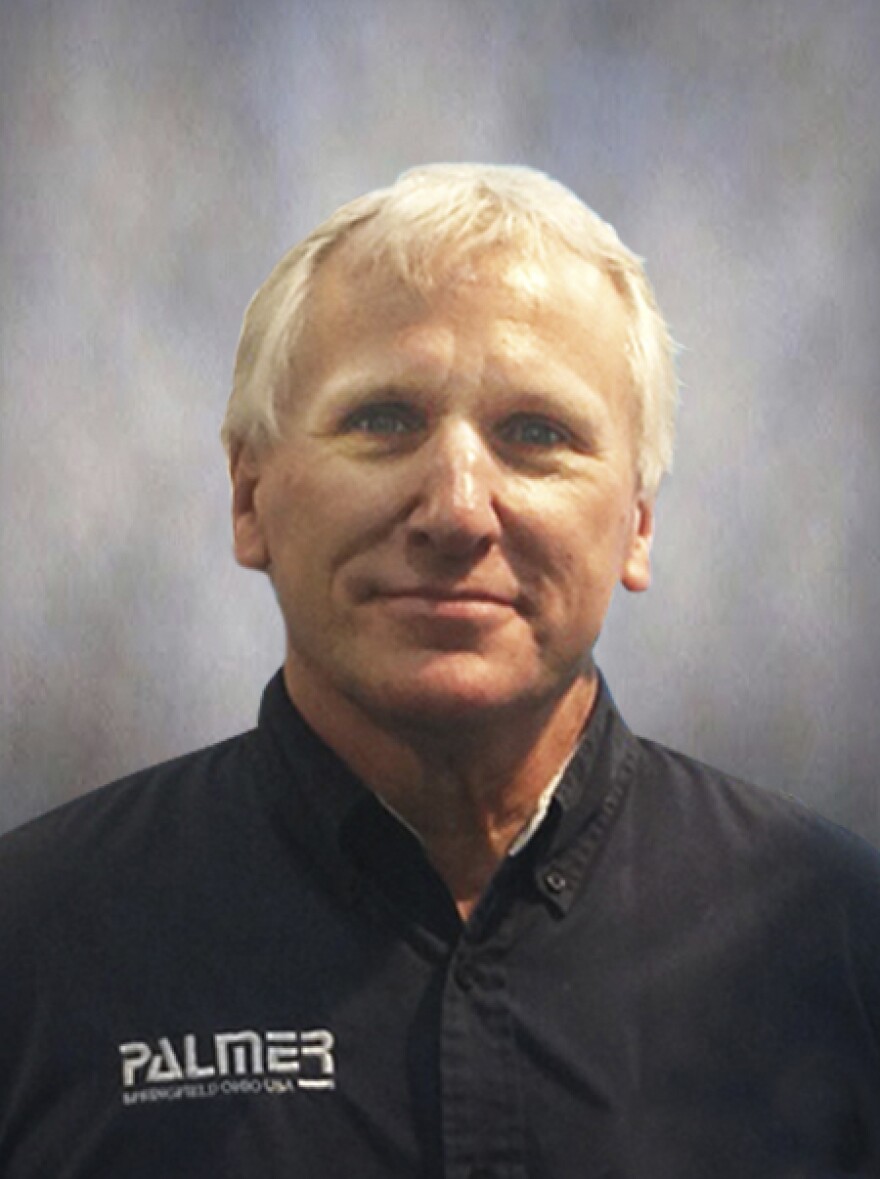Springfield, Ohio of the 1960s and 70s was an industrial town full of hot, gritty foundries. Jack Palmer, the son of a foundry foreman, knew those dim lit places as well as any foundry rat. In them, he learned the fundamental lessons that now have products with his name – and his father’s – in 27 countries.
At 68, Jack Palmer is as no-nonsense as his work clothes: a long sleeved white shirt and blue jeans under a head of solid white hair.
"I grew up in the foundry," Palmer says. "I started working when I was 14. My main job was always making things or fixing things. Wire, plumb, hydraulic. I knew what worked and I knew what didn’t. I knew what was good and I knew what sucked."
So, when his family opened Springfield’s Palmer Manufacturing & Supply in 1976, he started making machines he’d like to own. He describes them as "Simple, you know, really easy to work on and thick -- stupid thick. We always say, if you run into one of our machines with the forklift, you go fix the forklift."
It’s before 6 a.m. at a foundry in Indianapolis. Jack Palmer wants to see his Flip Molding Machine. It’s making molds for metal castings that will be used in Caterpillar machinery.
"The cores have to be there, they have to fit, they have to go on easily and quickly. They have to be able to close it quickly and get it out of the way, cause there’s two more coming right behind it. It's like an industrial ballet," Palmer says.
This flip molder makes molds three times faster and requires half the people as an earlier Palmer model. Its financial efficiency can be measured by comparing the two machines’ maintenance costs.
"Right now, we’re going through the second rebuild on this rollover where you put all these shafts and bearings and chains on it," says Palmer. "The rebuild is about $40,000 and they do that every five years. Just for that [older] rollover. They’ve spent $200 in four years on [the newer] machine, 50 bucks a year."
That’s 100 fold better -- evidence that the machine is simple and stupid thick enough to endure the sand, noise, grit and traffic of a foundry. But Palmer is always looking for better, and a system he designed to move the molds to the next step isn’t there. The company didn’t buy it, and it’s a kind of breach in efficiency that drives him nuts.
"It makes me want to eat my head," he says."
The mantra of simple and stupid thick took Palmer from a company with a foundry to a company that made machines for foundries. It then naturally expanded into golf courses, fracking and other industries that use sand. But when Palmer realized the same machinery could easily be adapted handle other materials, the company stepped on to a global stage.
"There’s a lot of stuff that gets metered and mixed in the world. There's concrete, ceramics, rubber crumb, wood dust. We do all kinds of stuff now."
Including light colored roofing that reflects heat rather than absorbing it, and cuts the amount of electricity needed to cool buildings. California requires it, and industrial giant U.S. Silica called on Palmer to help them produce it.
"Well, they came to us and said, look, we gotta do this testing where we have to get these granules, heat ‘em, mix ‘em with one chemical, fluid-bed dry ‘em, dry ‘em again, package ‘em, screen ‘em, take the dust out of it, yada, yada, yada. Can you do that? I thought about it for about seven point three seconds. I said, Yeah, because everything they said we've done and or could do or had had an affiliation with the company that makes the equipment," Palmer says.
The knowledge, experience and capacity to pull that off that kind of industrial choreography now has Palmer products and representatives in 27 countries. And has him fielding all kinds of requests.
"People come up and say, you know what, I’ve been a four or five places trying to get this thing made, and everybody says the same thing: We don’t do it, but call Palmer, they’ll do anything. I love the creative side of manufacturing, when you start with nothing and make something that never existed on the planet before. It’s fun."
All this, one customer says, has Palmer as excited as a dog in a butcher shop.
"I see opportunity everywhere -- just driving down the road, talking to people, reading magazines," Palmer says. "I can't help but look at machinery and say, you know, I could build that. I could incorporate that in some of my designs. That looks like something that we could use."
Especially when a customer gives him a chance to build something doesn’t yet exist on the planet.
"The easy thing to do is say, Well, no, I don't make that. Thank you very much. Let's go to lunch. You know, that's what losers say."
But that no self-respecting son of a foundry foreman ever would.

